
Why Data Analytics Projects Miss the Mark
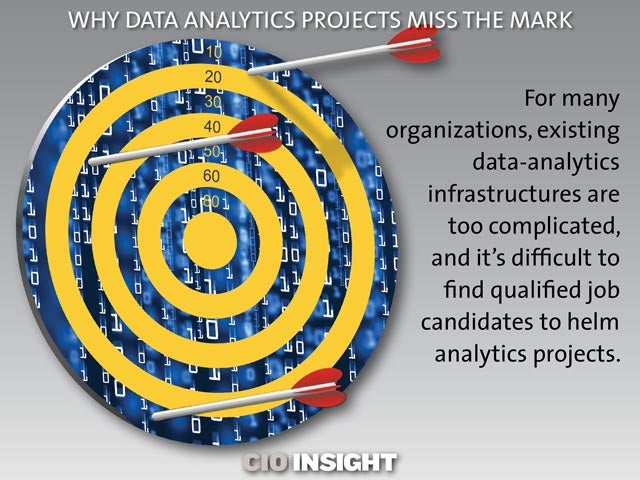 Why Data Analytics Projects Miss the Mark
Why Data Analytics Projects Miss the Mark
For many organizations, existing data-analytics infrastructures are too complicated, and it’s difficult to find qualified job candidates to helm analytics projects.
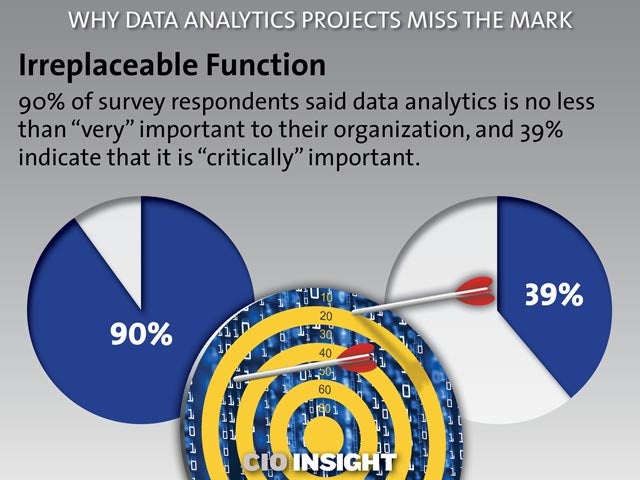 Irreplaceable Function
Irreplaceable Function
90% of survey respondents said data analytics is no less than “very” important to their organization, and 39% indicate that it is “critically” important.
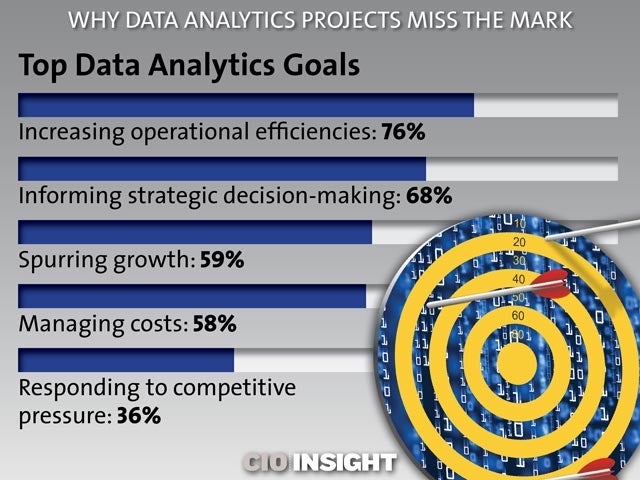 Top Data Analytics Goals
Top Data Analytics Goals
Increasing operational efficiencies: 76%, Informing strategic decision-making: 68%, Spurring growth: 59%, Managing costs: 58%, Responding to competitive pressure: 36%
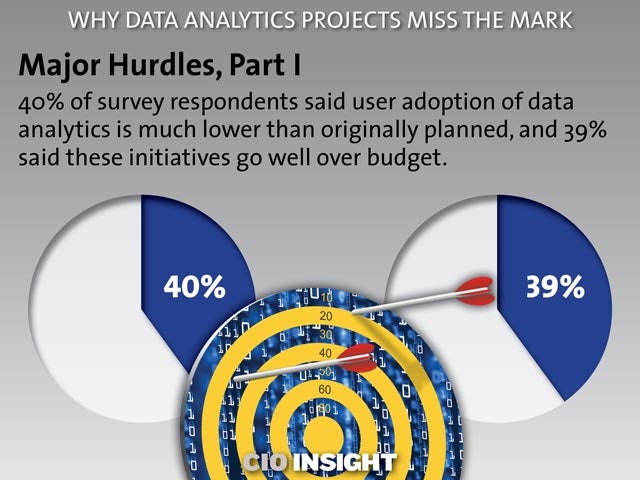 Major Hurdles, Part I
Major Hurdles, Part I
40% of survey respondents said user adoption of data analytics is much lower than originally planned, and 39% said these initiatives go well over budget.
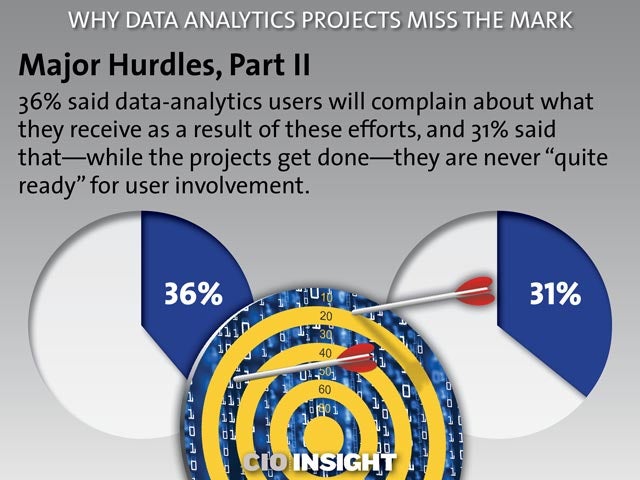 Major Hurdles, Part II
Major Hurdles, Part II
36% said data-analytics users will complain about what they receive as a result of these efforts, and 31% said that—while the projects get done—they are never “quite ready” for user involvement.
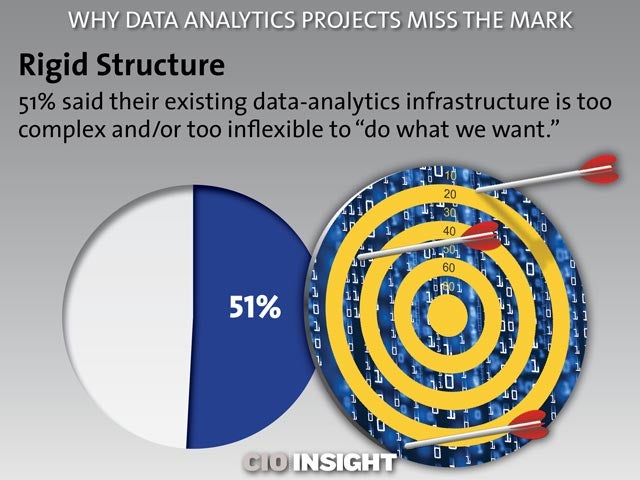 Rigid Structure
Rigid Structure
51% said their existing data-analytics infrastructure is too complex and/or too inflexible to “do what we want.”
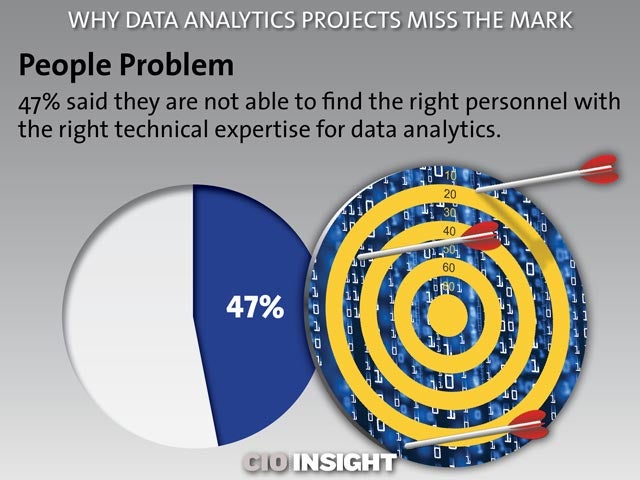 People Problem
People Problem
47% said they are not able to find the right personnel with the right technical expertise for data analytics.
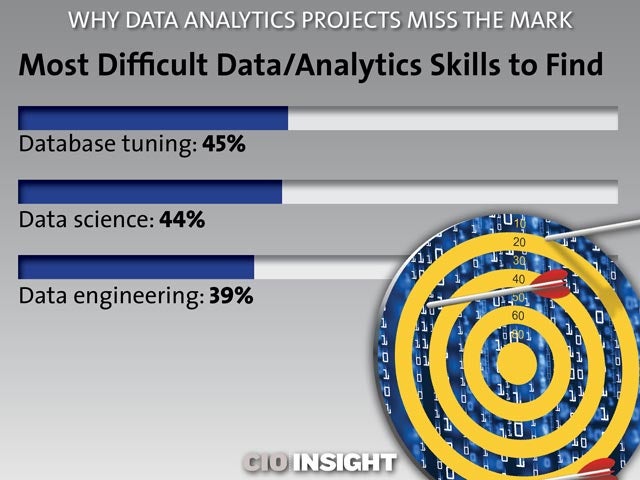 Most Difficult Data/Analytics Skills to Find
Most Difficult Data/Analytics Skills to Find
Database tuning: 45%, Data science: 44%, Data engineering: 39%
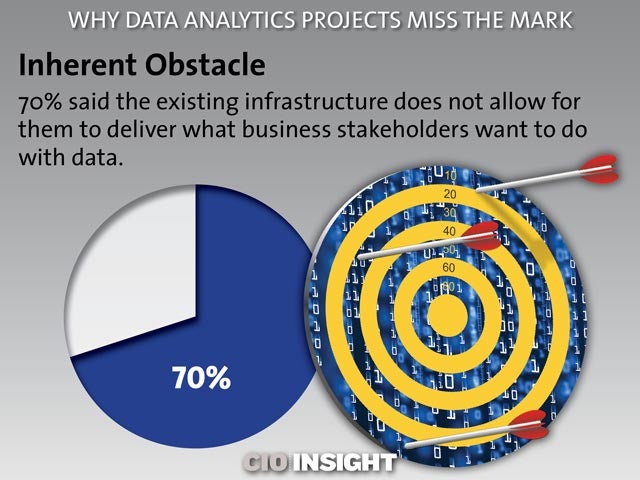 Inherent Obstacle
Inherent Obstacle
70% said the existing infrastructure does not allow for them to deliver what business stakeholders want to do with data.
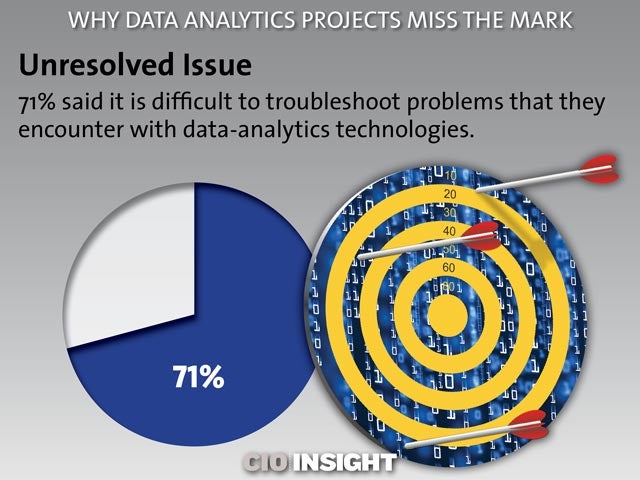 Unresolved Issue
Unresolved Issue
71% said it is difficult to troubleshoot problems that they encounter with data-analytics technologies.
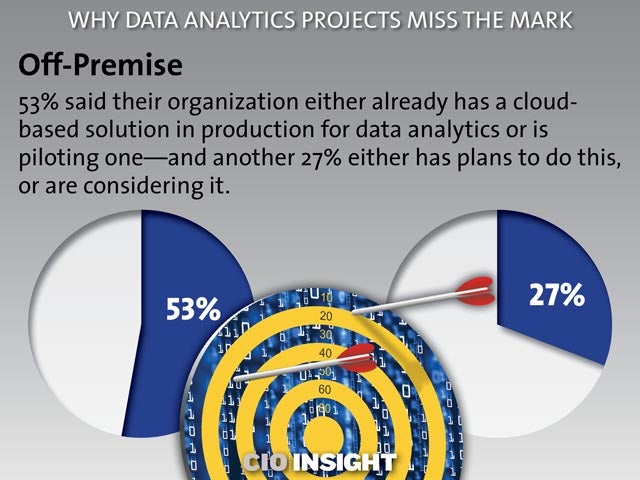 Off-Premise
Off-Premise
53% said their organization either already has a cloud-based solution in production for data analytics or is piloting one—and another 27% either has plans to do this, or are considering it.
 Available Avenue
Available Avenue
92% said that a “pay as you go” approach to data analytics would at least present the potential for them to “try more things” with these projects.